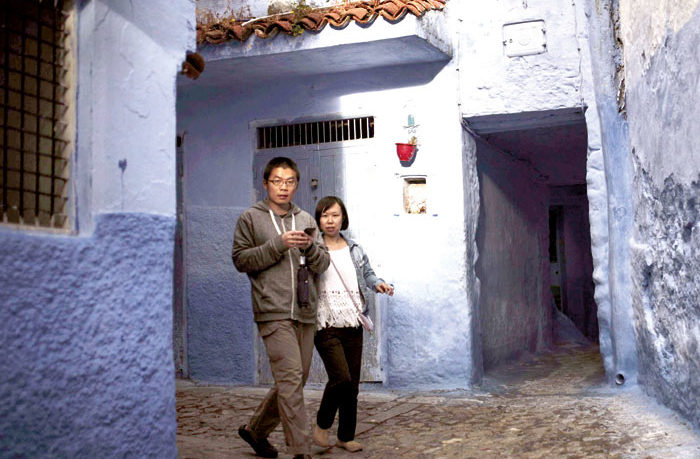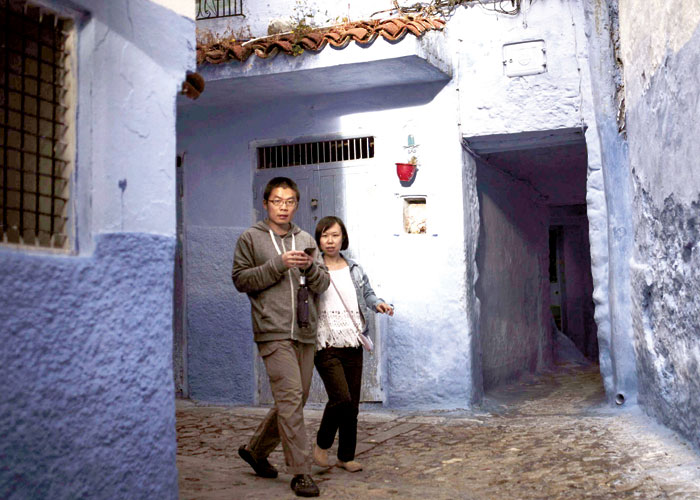Middle East Online
By Saad Guerraoui – CASABLANCA
The company reported that nearly 300,000 tourists using its online platform visited Morocco from September 2016 to September 2017.
The US-based online marketplace and hospitality service Airbnb is boosting Morocco’s tourism sector but the hotel industry has denounced what it calls “unlawful” competition.
The company, which does not own any lodgings, reported that almost 300,000 tourists using its online platform visited Morocco from September 2016 to September 2017, the Airbnb Africa Insight Report, published in October, said.
The country’s 21,000 active listings on Airbnb generated average annual earnings of $1,300, bringing in a total of $22 million in earnings for local households, the report said.
Airbnb, which entered the Moroccan market in 2010, makes money by charging fees to both guests and hosts on each rental. Hosts are charged a flat fee of 3% plus a value-added tax on each booking and guests are charged 5-15% of the cost of a reservation.
“I’ve been using Airbnb since 2011 to rent my apartment. It’s quick, hassle-free and Airbnb charges less than real estate agencies,” said Hamza, who owns a flat in the upscale Hivernage district in Marrakech.
“It helped me generate much-needed revenue when I left my job to concentrate on setting up my project,” he added.
Small hostels, guesthouses and riads have switched from platforms dedicated to hotels to offer their accommodations on Airbnb due to its growing popularity. Marrakech, Casablanca, Essaouira and Agadir top the list of accommodation offers in Morocco.
Morocco is Airbnb’s second-biggest market in Africa, after South Africa, in terms of accommodation offers.
“Airbnb allows you to live in a home rather than a hotel room. This is more comfortable for me and makes me feel like I’m at home rather than on vacation,” said Kaptan Kaster, an American professional tennis player in Morocco for tournaments. “It allows you to experience the culture more. Regardless of what neighbourhood you are staying in, Airbnb helps you dive into the region’s culture and interact with local neighbours.”
“It is cheaper. Usually I stay somewhere for a week and Airbnb gives a discount when you stay at least a week. There was a washer/ dryer, so we got to do clothes. That would have cost a lot at a hotel,” he added. He did mention that the bed was very hard.
The number of “guests” in Morocco has increased 68% compared to the previous year with 88% of them saying they rented Airbnb accommodations to “live like locals,” the report said.
The hotel industry has long complained about competition from Airbnb, which they considered “unlawful” because the home-sharing company’s market share is growing at the expense of hotels’ takings, which could jeopardise businesses and the jobs they provide.
Moroccan authorities are in touch with Airbnb to find a solution that would ensure “equity” between competitors in the tourism sector and control the quality of accommodations offered in Morocco.
The Ministry of Tourism said the main principle was tax fairness and declarations of arrivals and overnight stays.
“We had asked the ministry to discuss with Airbnb because this platform competes with hoteliers and travel agencies,” Fouzi Zemrani, vice-president of the National Confederation of Tourism, told the weekly TelQuel.
“We are not for the closure of Airbnb but we want them to be subject to Moroccan norms and rules,” he said. “Law 61-00 allows renting rooms from hosts but it must be declared to the police and hotel taxes must be paid.”
Morocco could consider France’s fiscal model, which divides hosts into categories determined by the level of income earned through Airbnb.
Saad Guerraoui is a regular contributor to The Arab Weekly on Maghreb issues.
This article was originally published in The Arab Weekly.








